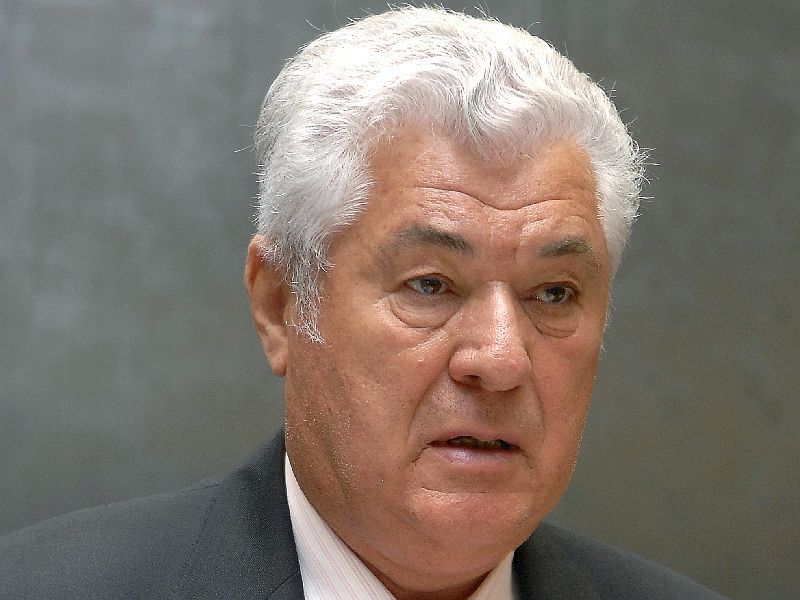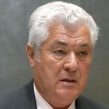
Moldova’s Political Landscape on the Eve of General Elections: Part One
Publication: Eurasia Daily Monitor Volume: 6 Issue: 53
By:

Moldova will hold parliamentary elections on April 5, and its new parliament will elect the new president and confirm a new government. Incumbent President Vladimir Voronin’s second, final term of office expires in April. The transition process ahead will severely test the country’s weak political system. Moldovan elections seem baffling and fraught with complexities like the country itself, in ways often eluding outside observers.
Ranked as Europe’s poorest country by its GDP and the number one exporter of cheap labor, Moldova is the only CIS member country to have held consistently free and fair elections (with the usual insignificant irregularities) from 1990 to date. Indeed all the parliamentary majority parties and all presidents failed to win re-election until the Party of Communists managed to do so in 2005, a feat it hopes to repeat on April 5, albeit from a weaker position and necessitating allies in the new parliament.
Most party labels are meaningless or downright misleading in Moldova. The incumbent majority party is communist in name only. Party leaders use that name as an electoral brand, attractive to a critical mass of voters. Moldova is the only post-Soviet country to have returned a communist party to power—and not once, but repeatedly. Communists were subjected to restrictions everywhere in post-Soviet elections but the Moldovan Communists competed unrestricted in this country’s free elections. The party gained a plurality of parliamentary seats in 1998 and an absolute majority of the seats in 2001 and again in 2005. It won the 2001 elections on a platform of nostalgia for the Soviet period and the 2005 elections on a pro-Europe platform, having run afoul of Moscow by 2003-2004.
For another seeming paradox in Moldova, the Christian-Democrats with their long record of militant anti-communism entered into a parliamentary partnership with the Communist Party, once Voronin’s team had adopted a European orientation and stood up to Russia. Although the Communist Party sometimes vacillated on both counts, the Christian-Democrats understood the importance of not being isolated and not being forced to depend on Moscow-oriented local allies. In this situation the Christian-Democrats consider that Moldovan anti-Communists are fighting yesterday’s battles.
Moldova is the only European country where clinging to the Communist label is (until now, at least) politically expedient for the authorities. Indeed, the party’s internal polls have shown that it would lose more voters than it would gain if it were to change the party’s name. The lost votes would then accrue mostly to Russia-oriented and leftist groups. In their frustration some of these groups accuse Voronin’s team of manipulating the "Russian-speaking" and Communist voters, paying lip service to them while actually pulling the country away from Russia into the EU. Within inter-parliamentary organizations, the Moldovan Communists affiliate with surviving remnants of the Euro-Communist parties of the 1980s and other marginal Euro-leftists.
Essentially a parliamentary republic under the constitution, Moldova nevertheless functions in practice as a presidential republic, with decision-making authority concentrated in the presidential office. President Vladimir Voronin controls de facto the parliament and government in his dual capacity as head of state and leader of the majority party. Within the Communist party and among much of the Moldovan populace, Voronin enjoys what used to be described in another time and place as a "dictature du respect."
Despite this party’s majority status, Moldova cannot be termed a "communist-ruled" or "communist-governed" state. The government’s 19 members include only two Communists, the others being politically unaffiliated. In this election, however, half the government’s members are running for parliament on the Communist Party’s slate. Voronin embraced the agenda of European integration in 2004 ahead of his party and must often nudge an uncomprehending or reluctant parliamentary majority to adopt legislation envisaged by the Moldova-European Union Action Plan. Many Communist parliamentarians grumble but ultimately they march to the EU’s tune. This modus operandi has proven relatively effective thanks to Voronin’s dual role as head of state and of the majority party. This turned out to be a basis for stability and incremental changes in a destitute provincial society.
The Communists’ administrative resources are weaker this time, following substantial setbacks in the 2007 local elections. Opposition parties can and do use administrative resources in the many administrative units now under their control. The Communists Party retains control over 11 district councils; opposition parties in various combinations now control 14 district councils as well as (however narrowly) the city of Chisinau; the balance of power is uncertain in yet another eight districts (BBC Monitoring Research, March 9).
Voronin, Parliament chairman Marian Lupu, and Prime Minister Zinaida Grecianai hold the first three places on the Communist Party’s electoral slate. Top presidential adviser Marc Tcaciuc (number seven on that slate) has been seconded to coordinate the party’s electoral campaign. Tcaciuc had led an effort to rejuvenate the party in the run-up to the campaign. The effort succeeded in elevating a young group to the party leadership around Voronin. But the rejuvenation stopped half-way on the electoral slate, where Soviet-era veterans still counterbalance the young element.
The party’s campaign motto is more telling in the Russian-language version than in the Romanian one about the party’s evolution: "Postroim Vmeste Yevropeiskuyu Moldovu. Kommunisticheskaya Partiya R.M" ("Let us build together a European Moldova. The Communist Party of R.M."). Program goals include negotiating and signing an association agreement with the European Union, freer access of Moldovan citizens and goods to the EU, and resolving the Transnistria conflict through a negotiated autonomy status on the basis of Moldova’s territorial integrity, its continuing neutrality, and its demilitarization.
The Communist Party promises to cooperate in the new parliament with any party that supports the independent statehood of an indivisible Moldova within Europe. (These are code words for non-unification with Romania, reunification with Transnistria, and staying out of Russia’s orbit). But the party’s message also pays lip service to partnership with Russia, in deference to a sizeable portion of Moldova’s and the party’s own electorate.




